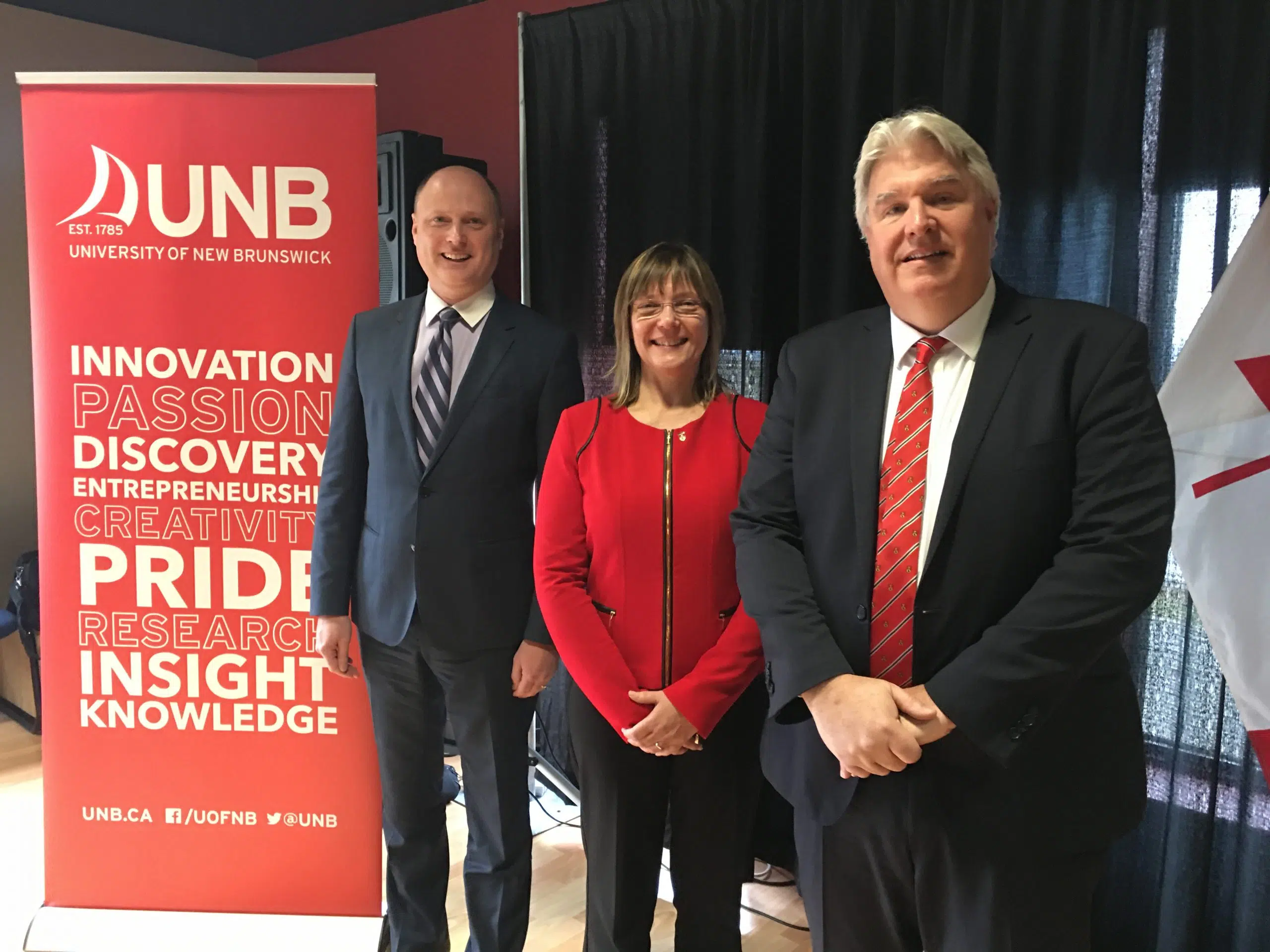
The province has announced funding to help licensed practical nurses become registered nurses. From left to right: Trevor Holder, Minister of Post-Secondary Education, Training and Labour; Dr. Petra Hauf, vice-president, UNB Saint John; Paul Mazerolle, president and vice-chancellor, UNB. (Photo: Brad Perry)
New Brunswick will spend $10.6 million over 10 years to help licensed practical nurses become registered nurses.
It comes as the province faces a shortage of a least 130 registered nurses a year over the next decade.
The University of New Brunswick and the Université de Moncton will each receive $5.3 million to offer bridging programs for LPNs.
Post-Secondary Education, Training and Labour Minister Trevor Holder said it is “outside the box thinking” to help address the shortage.
“The fact that we’re taking LPNs from around the province, giving that bridging necessary so that within a two-year period they’re going to be RNs as opposed to waiting four years for them,” said Holder.
The funding will support 24 seats per year at the UNB Saint John campus and 25 seats per year among UdeM’s campuses in Shippagan, Edmundston and Moncton.
The bridging program combines classroom learning and clinical experience. It is designed to recognize their experience and education while addressing the knowledge and training differences between LPNs and RNs.
Post-Secondary Education Minister Trevor Holder has announced 10-year funding agreements with UNB and the Université de Moncton to implement bridging programs for LPNs. The program helps LPNs to become registered nurses. pic.twitter.com/XLYiS6hoIY
— Brad Perry (@BradMPerry) November 18, 2019
Paul Mazerolle, president and vice-chancellor at UNB, said it is a significant investment for the university, the province and the nursing profession.
“It helps to cover the costs — and you would be well informed that the cost of nursing education is very significant — so this helps us provide stability and it also sends a really necessary message of investment and support,” said Mazerolle.
Following the announcement, Holder was asked if the bridging programs could lead to a shortage of LPNs.
“All of the advice that I’ve gotten so far is that there’s still enough LPNs in the system and that we’re still training enough and that’s something that we’re going to monitor,” he said. “I think it’s important that we don’t do any of these things in isolation.”
But Holder said there is no one solution to fix the nursing crisis, which he said did not happen overnight.
He noted the government recently released a nursing resource strategy focused on recruitment, retention, promotion of the nursing profession, and enhancing nursing education and employment and work-life balance.
The strategy is made up of 21 action items, which include recruiting internationally educated nurses as part of immigration efforts.
The programs will begin in January 2020. Holder said universities will not receive funding until the students successfully complete one year of the program.












